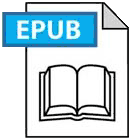HOW DOES GROUP AFFILIATION AFFECT THE DIVERSIFICATION PERFORMANCE OF FAMILY-CONTROLLED FIRMS IN MALAYSIA?
– A GOVERNANCE PERSPECTIVE
Ng Sin Huei
Faculty of Business, Communications & Law, INTI International University,
Persiaran Perdana BBN, Putra Nilai, 71800 Negeri Sembilan, Malaysia
E-mail: sinhuei.ng@newinti.edu.my
ABSTRACT
This paper examines the roles of business group affiliations and whether the size and ownership structure of business groups influence the performance outcomes of diversification among family-controlled firms in Malaysia. It presents evidence that agency-driven and thus performance-diminishing firm diversification is more likely to take place in firms affiliated with a family-controlled business group than in independent firms. The findings support the hypothesis that if the benefits of diversification can be captured through group-level diversification, then diversification at the firm level is more of an act of expropriation. In Malaysia, the undue political interference in business that to a certain extent has contributed to a weak enforcement of rules causes the enhanced control of family ownership through the formation of large and structurally complicated business groups to go unchecked. This grants the controlling families opportunities to pursue sub-optimal firm diversification policies that bring them more self-interested benefits at the expense of firm performance.
Keywords: family-controlled business groups, firm performance, group size, group structure, agency problems, firm diversification
Full text  EPUB
EPUB 